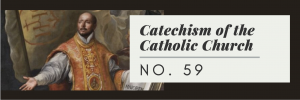
Memorial of Saint Ignatius of Loyola, Priest
Reading 1 JER 26:1-9
In the beginning of the reign of Jehoiakim,
son of Josiah, king of Judah,
this message came from the LORD:
Thus says the LORD:
Stand in the court of the house of the LORD
and speak to the people of all the cities of Judah
who come to worship in the house of the LORD;
whatever I command you, tell them, and omit nothing.
Perhaps they will listen and turn back,
each from his evil way,
so that I may repent of the evil I have planned to inflict upon them
for their evil deeds.
Say to them: Thus says the LORD:
If you disobey me,
not living according to the law I placed before you
and not listening to the words of my servants the prophets,
whom I send you constantly though you do not obey them,
I will treat this house like Shiloh,
and make this the city to which all the nations of the earth
shall refer when cursing another.
Now the priests, the prophets, and all the people
heard Jeremiah speak these words in the house of the LORD.
When Jeremiah finished speaking
all that the LORD bade him speak to all the people,
the priests and prophets laid hold of him, crying,
“You must be put to death!
Why do you prophesy in the name of the LORD:
‘This house shall be like Shiloh,’ and
‘This city shall be desolate and deserted’?”
And all the people gathered about Jeremiah in the house of the LORD.
Responsorial Psalm 69: 5, 8-10, 14
R. (14c) Lord, in your great love, answer me.
Those outnumber the hairs of my head
who hate me without cause.
Too many for my strength
are they who wrongfully are my enemies.
Must I restore what I did not steal?
R. Lord, in your great love, answer me.
Since for your sake I bear insult,
and shame covers my face.
I have become an outcast to my brothers,
a stranger to my mother’s sons,
Because zeal for your house consumes me,
and the insults of those who blaspheme you fall upon me.
R. Lord, in your great love, answer me.
But I pray to you, O LORD,
for the time of your favor, O God!
In your great kindness answer me
with your constant help.
R. Lord, in your great love, answer me.
Alleluia 1 PT 1:25
R. Alleluia, alleluia.
The word of the Lord remains forever;
this is the word that has been proclaimed to you.
R. Alleluia, alleluia.
Gospel MT 13:54-58
Jesus came to his native place and taught the people in their synagogue.
They were astonished and said,
“Where did this man get such wisdom and mighty deeds?
Is he not the carpenter’s son?
Is not his mother named Mary
and his brothers James, Joseph, Simon, and Judas?
Are not his sisters all with us?
Where did this man get all this?”
And they took offense at him.
But Jesus said to them,
“A prophet is not without honor except in his native place
and in his own house.”
And he did not work many mighty deeds there
because of their lack of faith.

God chooses Abraham
59 In order to gather together scattered humanity God calls Abram from his country, his kindred and his father’s house,16 and makes him Abraham, that is, “the father of a multitude of nations”. “In you all the nations of the earth shall be blessed.”
 “For greater things you were born.” (Ven. Mother Luisita)
“For greater things you were born.” (Ven. Mother Luisita)
FRIDAY, JULY 31ST Mt. 13: 54-58 “He did not work many mighty deeds there because of their lack of faith.” Feast Day of Saint Ignatius of Loyola, S.J. (1491-1556)
PART I: Principle And Foundation.
PART II. Salvation of Your Immortal Soul! By Father Ed Broom

St. Ignatius of Loyola, the great saint we celebrate today, was given the Spiritual Exercises by Our Blessed Mother. This is a painting memorializing that event.The priest in the right hand corner pointing this event out to us is Ven. Pio Bruno Lanteri (1759-1830), Founder of the Oblates of the Virgin Mary – the religious order of Fr. Ed and of all the priests who serve at St. Peter Chanel Church in Hawaiian Gardens.
PRINCIPLE AND FOUNDATION OF THE SPIRITUAL EXERCISES…
TWO PRINCIPLES
The End of the Human Person. Man is created to praise, reverence, and serve God our Lord, and by this means save his soul.
The End of Creatures. The other things on the face of the earth are created for man to help him in attaining the end for which he is created.
TWO LOGICAL CONSEQUENCES OF THOSE PRINCIPLES
Tantum Quantum. Hence, man is to make use of them in as far as they help him in the attainment of his end, and he must rid himself of them in as far as they prove a hindrance to him.
Holy Indifference. Therefore, we must make ourselves indifferent to all created things, as far as we are allowed free choice and are not under any prohibition. Consequently, as far as we are concerned, we should not prefer health to sickness, riches to poverty, honor to dishonor, a long life to a short life. The same holds for all other things.
THIRD CONSEQUENCE
Love of God. Our one desire and choice should be what is more conducive to the end for which we are created.
SALVATION OF YOUR IMMORTAL SOUL: 1st GOAL! By Fr. Ed Broom, OMV
The Story of Two Saints…
When he arrived at the University of Paris, Francis Xavier was motivated by many worldly and vain ambitions. A top-notch athlete, a first class scholar, a man who loved life and the party, a full-blown extrovert and a friend to many, still there was something missing in his life—an ardent pursuit for God and His honor and glory.
THE CONVERSION EXPERIENCE. God would pursue Xavier as in the poem of Francis Thompson, the Hound of Heaven. This pursuit would become a reality through the providential meeting between two future saints—Francis Xavier and Ignatius of Loyola.
The Battle of Pamplona turned out to be a Damascus experience for Ignatius when a cannon ball nearly ended his life as it shattered his legs. It was through this excruciating pain and intense suffering that God intervened to change the path 180 degrees of Ignatius. Suffering, silence, reading and reflecting on the lives of the saints turned out to be the catalyst and transforming force in the life of Ignatius of Loyola.
With Xavier, God would use a different tool. God knows how to work in each soul so as to bring about conversion, sanctification, and perfection. Xavier’s metanoia/conversion experience would take its course through Ignatius and in this manner. Ignatius saw deep in the person of Xavier a real capacity for good, a real capacity for holiness, a real capacity for this man to give great honor and glory to God and become a bridge by which many souls could travel from earth to heaven.
THE TRANSFORMING WORD OF GOD. Xavier, Ignatius, and Peter Favre were roommates at the University of Paris. Ignatius was giving the Spiritual Exercises and lives were being transformed—as in the case of Saint Peter Favre. However, Xavier would not agree to do them, would not capitulate! Therefore, Ignatius approached Xavier with these words pronounced by Our Lord and Savior Jesus Christ: “What would it profit a man if he gains the whole world and loses his soul?” (Mk. 8:36) Ignatius would challenge the false security of Xavier time and time again with these penetrating words of Jesus. Like a sledge-hammer pounding unceasingly against a stone, Ignatius would repeat the same Biblical challenge. Finally, Xavier accepted the challenge and agreed to go through the Spiritual Exercises directed by Ignatius himself. Saint Ignatius honestly admitted that Xavier was one of the hardest nuts to crack, but crack indeed he did, and Xavier’s conversion to Christ and His cause was initiated.
SAINT FRANCIS XAVIER. To make a long story short: Francis Xavier became a follower of Saint Ignatius, and they were ordained priests together. Ignatius founded and formed the Company of Jesus known as the Jesuits. Then upon the request of the Holy Father, Ignatius sent Francis Xavier on a mission to the Far East, starting in India, working his way through other countries to Japan. Xavier’s most ardent desire was the arrival at and the conversion of China to Christ. After ten years of missionary work, Xavier died overlooking the mainland of China on the island of Sanchen. He was only 46 years of age. His missionary accomplishments can hardly be numbered: baptisms, so many that he could barely raise his arm at the end of the day; catechism classes and converts; formation of catechetical centers; formation of lay-missionaries; service to the poor, the sick, and the dying; tireless work as a preacher and missionary. We are just touching the tip of the iceberg with respect to Xavier’s accomplishments through the grace of God and the presence of the Holy Spirit.
HIS MOTIVATING FORCE. What then was the motivating force behind the enormous efforts of Saint Francis Xavier? Quite simply two ideals: to give God the greatest honor and glory, and to work with and for God for the salvation of as many souls as possible.
HOW CAN WE STRIVE FOR THE SALVATION OF SOUL? This being said, what then can we do to imitate Xavier and the saints in the most noble pursuit of working with the Lord for the salvation of immortal souls?
1. RECOGNIZE THE VALUE OF THE IMMORTAL SOUL. Saint Thomas Aquinas, the Angelic Doctor, asserted: “One soul is worth more than the whole created universe.” Reflect upon this assertion! All of creation—stars, moon, oceans, mountains, and all living creatures, as well as riches and power—all of these lumped together do not have the value of one immortal soul! How enormously sublime is the dignity and destiny of the soul that God has created in His image and likeness! To add to the sublimity of this thought: meditate upon the Passion of Jesus and the shedding of His Precious Blood. Our Lord and Savior Jesus Christ shed every drop of His Precious Blood for all of humanity, but also for each individual soul, that is, for each and every one of us!
2. JESUS’ WORDS: “What would it profit a man if he gains the whole world and loses his soul?” (Mk. 8:36) These words converted the heart and life of Saint Francis Xavier and they can convert your life too! The powerfully penetrating words of Our Lord and Savior Jesus Christ puts all in proper perspective. The richest man in the world, as well as the poorest man, end up in the same place: six feet beneath the ground. In the eyes of God, the richest man in the world is the man who dies in the state of sanctifying grace, which means he will be saved for all eternity!
3. DESIRE OF JESUS AND MARY! In the Diary of Saint Faustina, Jesus constantly reminds the saint that the most important prayer, and the one that pleases Him most, is for the conversion of sinners and the salvation of immortal souls. Our Lady of Fatima reiterates the same desire of Jesus: pray and offer many sacrifices for the conversion of sinners. Many souls are lost because there is nobody to pray and offer sacrifices for them.
4. THE MOST PLEASING OF PRAYERS. The Hearts of Jesus and Mary rejoice every time you offer this prayer: Lord Jesus, through your most Precious Blood that you shed for sinners, I beg of you the conversion and salvation of sinners, especially those who are in most need of your infinite mercy.
5. OFFER IT UP. These three words have enormous meaning and impact if we understand them in the real depth that they contain. Interpretation? Yes, we must learn to be like Saint Jacinta Marto, at least to a limited degree: Little Victim Souls. By this we mean, to learn the art of offering up and uniting our sufferings to Jesus who suffered His Bitter Passion for the salvation of humanity.
6. OFFER UP WHAT??? Our Lady of Fatima told the children to offer up everything, yes, that is everything, for the conversion of sinners and their salvation. Examples: headaches, stomach aches, tooth aches, the cold, the heat, the humidity, any physical suffering. Offer up your economic struggles, your family trials, your sufferings at home and at work. Offer your spiritual aridity and dryness, your struggles with the faith. In other words, you can offer your whole life and your whole being to God through the Immaculate Heart of Mary for the salvation of immortal souls. What are you waiting for? Start now!
7. RESIST AND REJECT TEMPTATIONS. Most likely, we rarely reflect upon our life as a constant battle against the devil, the flesh, and the world. Temptations, whether we like it or not, are part of the human condition! Offer up your resistance and rejection of temptations for the sake of souls who are slaves of the devil and in jeopardy of losing their salvation!
8. JESUS ON THE CROSS: CONTEMPLATE THE SUFFERING SAVIOR. Many saints have received countless apostolic blessings and been fired up with zeal for the salvation of souls by the contemplation of Jesus hanging on the cross. On a weekly basis, spend some time contemplating Jesus hanging from the cross and beg through His Passion, death, and Precious Blood, for the conversion and salvation of immortal souls. May the words of Saint Francis of Assisi, who bore the wounds of Christ in his body in the stigmata, inspire you: “We adore you, O Christ, and we praise you, because by your holy cross you have redeemed the world.”
9. SAINT FRANCIS XAVIER AND THE LIVES OF THE SAINTS. It must be said with utmost sincerity: we all urgently need role models on whom we can pattern our lives. Of course, Jesus, Mary, and Saint Joseph are the top three. However, the lives of the saints, and especially the zeal and love of Saint Francis Xavier, can catapult us into the infinite ocean of soul saving! God gives all of us abundant graces, but we must correspond to those graces! Still, we must have brilliant lights before our eyes to stimulate us, motivate us, and encourage us to work ardently with the Lord for the salvation of souls. Jesus stated it bluntly: “The harvest is rich, but the laborers are few. Beg the Lord of the harvest to send more laborers to work in His vineyard.” (Mt. 9: 37-38)
10. OUR LADY: QUEEN OF THE APOSTLES. The first Novena culminated on the Feast of Pentecost—the descent and coming of the Holy Spirit upon the Apostles with the Blessed Virgin Mary. Indeed, it was the presence, the prayers, the poise and power of the person of Mary, the Mother of God, the Mother of the Church, and the Queen of the Apostles that facilitated and hastened the coming and abiding presence of the Holy Spirit. Fearful, doubting, cowardly, insecure men were transformed into ardent, zealous lovers of God and fervent seekers of immortal souls—these we call the Apostles. So strong was their zeal that all, with the exception of Saint John the Evangelist, shed their blood for love of Jesus and the salvation of immortal souls! Therefore, we must enter into the Cenacle with Mary and beg for the coming of the Holy Spirit, this Divine-Invasion, so that we will become the modern fiery, fervent, faithful Apostles of the Hearts of Jesus and Mary. May the last of words of Saint Ignatius of Loyola to Saint Francis Xavier, as he departed for India, be our words: GO SET ALL ON FIRE!!!
Editor’s Note: If it were not for the conversion and holiness of Saint Ignatius of Loyola, we would not have the great St. Francis Xavier, and we would not have the Spiritual Exercises that have changed our lives and the lives of so many others!!!
Copyright 2020 Oblates of the Virgin Mary
St. Peter Chanel Church, Hawaiian Gardens, CA
St. Ignatius of Loyola and St. Francis Xavier, Pray for us!

St Ignatius of Loyola,
Pray for us!
Church of the Gesu, constructed in 1584, located in Rome, Italy, St Ignatius of Loyola, the founder of the Jesuits, is buried under the altar in the left transept.  The Church of the Gesù (Italian: Chiesa del Gesu) is the mother church of the Society of Jesus.
The Church of the Gesù (Italian: Chiesa del Gesu) is the mother church of the Society of Jesus.
 In the Church of the Gesu, this silver reliquary conserves part of the St. Francis Xavier’s right arm (by which he baptized 300,000 people), his other remains are interred in the Jesuit church in Goa.
In the Church of the Gesu, this silver reliquary conserves part of the St. Francis Xavier’s right arm (by which he baptized 300,000 people), his other remains are interred in the Jesuit church in Goa.












